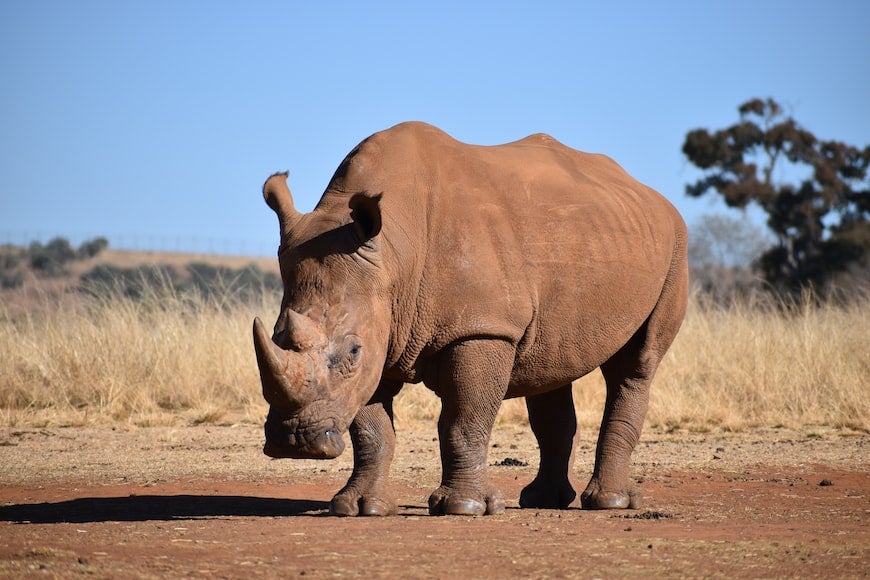Second 30-year sentence for rhino poaching in Mozambique
Judicial service and wildlife protection agency stepping up battle against illegal wildlife trade

Your support helps us to tell the story
From reproductive rights to climate change to Big Tech, The Independent is on the ground when the story is developing. Whether it's investigating the financials of Elon Musk's pro-Trump PAC or producing our latest documentary, 'The A Word', which shines a light on the American women fighting for reproductive rights, we know how important it is to parse out the facts from the messaging.
At such a critical moment in US history, we need reporters on the ground. Your donation allows us to keep sending journalists to speak to both sides of the story.
The Independent is trusted by Americans across the entire political spectrum. And unlike many other quality news outlets, we choose not to lock Americans out of our reporting and analysis with paywalls. We believe quality journalism should be available to everyone, paid for by those who can afford it.
Your support makes all the difference.By Omardine Omar for Integrity Magazine
A Mozambican court has sentenced a poacher to a 30-year sentence, the second such
maximum term handed down this year and evidence of a crackdown by the country’s judicial
and conservation authorities against the illegal wildlife trade.
The panel of judges of the Judicial Court of the Province of Maputo sentenced Vusi Geraldo
Mucavele to a single sentence of 30 years imprisonment and a fine equivalent to 26 years at the single rate of 1% of the Civil Service salary.
Vusi Geraldo Mucavele, 22, a Mozambican poacher who was dedicated to the slaughter, extraction and trafficking of trophies of protected animals of great environmental and economic value, such as the rhinoceros, was convicted of the crime of prohibited hunting.
This information is contained in a press release sent this Sunday October 2 to our newsroom by the National Administration of Conservation Areas (ANAC), a state entity that works hard in the conservation of biodiversity and the sustainable development of ecotourism in Mozambique.
According to ANAC, Vusi Geraldo Mucavele was arrested at 10 pm on January 13, 2022, when he was returning from yet another poaching activity in the Lebombo cross-border region, known as the Greater Lebombo Conservancy (GLC), in the company of two accomplices who are still at large.
Mucavele was arrested in possession of 0.375 calibre gun ammunition, an axe for cutting rhino horns, as well as food products. The group is believed to have entered a wildlife reserve, by climbing a fence with the intention of slaughtering rhinos.
According to ANAC, this is the second case in which an illegal hunter of protected species is sentenced to 30 years in prison, after the conviction of another citizen in January of this year, who was given the same penalty.
The ANAC press release states that, from 2008 to 2022, more than 8,000 rhinos were killed by poachers throughout the Great Limpopo Transfrontier Park region, which includes the Kruger National Park, in South Africa, the Gonarezhou National Park of Zimbabwe, the Limpopo National Park and the wildlife reserves which are located in Mozambican territory along the border with the Kruger National Park, also known by the acronym GLC (Great Lebombo Conservancy).
The area extends from the south bank of the Rio dos Elefantes in Massingir, in the province of Gaza, to Ressano Garcia, in the district of Moamba, in the province of Maputo.
This year, more than 107 rhinos have been slaughtered. Poaching is defined as the indiscriminate killing and trafficking of protected species and their products, such as rhino horns, elephant ivory, lion teeth and claws, and even pangolin meat and scales.
As ANAC advances, the most disturbing fact in this matter is that the various groups of criminal networks circulating with large-calibre firearms, such as Magnum 0.375, 0.458, 30-06 and more.
This article is reproduced here as part of the African Conservation Journalism Programme, funded in Angola, Botswana, Mozambique, and Zimbabwe by USAID’s VukaNow: Activity. Implemented by the international conservation organization Space for Giants, it aims to expand the reach of conservation and environmental journalism in Africa, and bring more African voices into the international conservation debate.
Written articles from the Mozambican and Angolan cohorts are translated from Portuguese. Broadcast stories remain in the original language.
Read the original story here:
Join our commenting forum
Join thought-provoking conversations, follow other Independent readers and see their replies
Comments